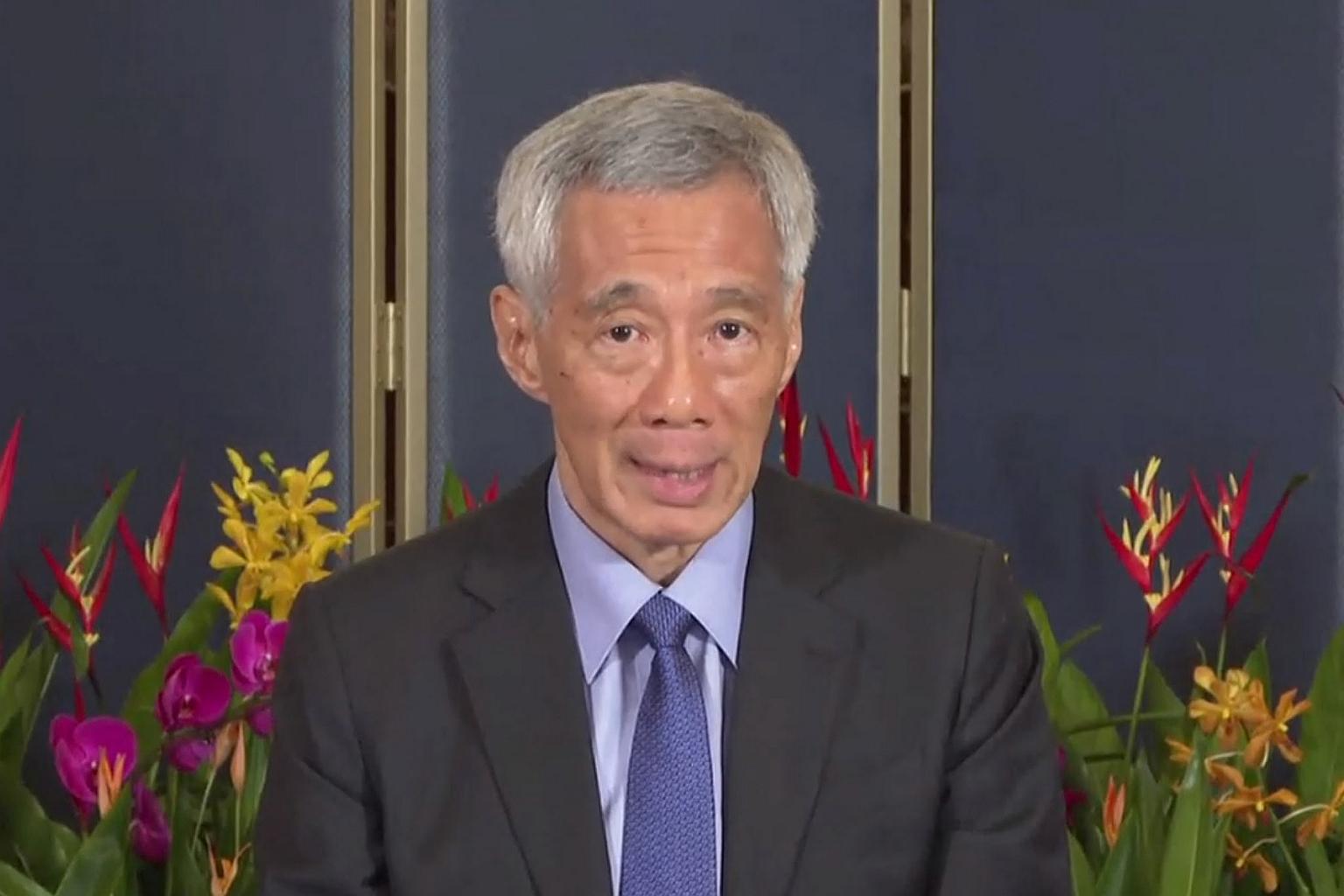Close global and multilateral cooperation key to fighting pandemics: PM Lee at G-20 health summit
Sign up now: Get ST's newsletters delivered to your inbox

Prime Minister Lee Hsien Loong speaking at the Group of 20 Global Health Summit on May 21.
PHOTO: EUROPEAN COMMISSION
Follow topic:
SINGAPORE - Close international and multilateral cooperation is essential in combating and responding to pandemics, said Prime Minister Lee Hsien Loong on Friday (May 21).
Speaking virtually at the Group of 20 (G-20) Global Health Summit in Rome, Italy, PM Lee said the repeated waves of Covid-19 around the world clearly showed that no country is safe in a pandemic until everyone else is safe.
He noted that even during difficult times, countries have cooperated to restore supply chains, repatriate citizens stuck overseas, and share tests and medical supplies.
They also supported vaccine multilateralism initiatives like Covax, so that all countries, especially the least developed ones, would have access to vaccines, he added.
"Crucially, international scientific cooperation continued. Doctors and scientists shared information, studying the Covid-19 virus, developing treatments and testing vaccines," he said.
"This enabled us to improve treatments, and produce effective vaccines in record time, some using new technologies."
The summit is organised by Italy, as chair of the G-20 this year, in partnership with the European Commission (EC). It is among this year's major events to coordinate global actions against the pandemic.
Leaders of the world's largest economies and their key partners attending the summit, which is co-chaired by Italian Prime Minister Mario Draghi and EC president Ursula von der Leyen, are expected to adopt a declaration recommending voluntary actions to boost Covid-19 vaccine production, called the Rome Declaration of principles.
Noting that the world remains in the thick of the pandemic, PM Lee said: "But this will neither be the last nor the worst pandemic that we encounter.
"Sooner or later, something more transmissible or lethal will emerge. Hence we must take every opportunity to learn from this pandemic, to prepare ahead for the next one."
He said Singapore fully supports the Rome Declaration of principles to strengthen the global health architecture.
The declaration lays out countries' individual commitments to fighting Covid-19. A well-functioning public healthcare system is a critical part of any country's pandemic response, said PM Lee.
National healthcare systems and capabilities, such as testing, contact tracing and vaccination, must be strengthened, he added.
This was not just about putting plans on paper, but being able to execute them well, he said, giving the example of organising and carrying out vaccination in places where populations are large and dispersed, and government reach is limited.
"Such preparations should be sustained during peacetime to break the vicious cycle of 'panic-and-neglect'," added PM Lee.
"Overcoming global pandemics demands a concerted global effort," he said. The World Health Organisation (WHO) has a central role to play, in directing and coordinating international health responses, disease surveillance and preparedness.
The Independent Panel for Pandemic Preparedness and Response, which was convened by a request from the World Health Assembly in May last year, has made several recommendations to strengthen the authority and financing of the WHO so that it can continue to operate impartially, he said.
Singapore supports the panel's recommendations, PM Lee added.
"Singapore will also play our part to work with all countries to strengthen collective resilience against future pandemics," he said, adding that the Republic was happy to share its experience dealing with Covid-19, and in other areas like urban health emergency preparedness.

